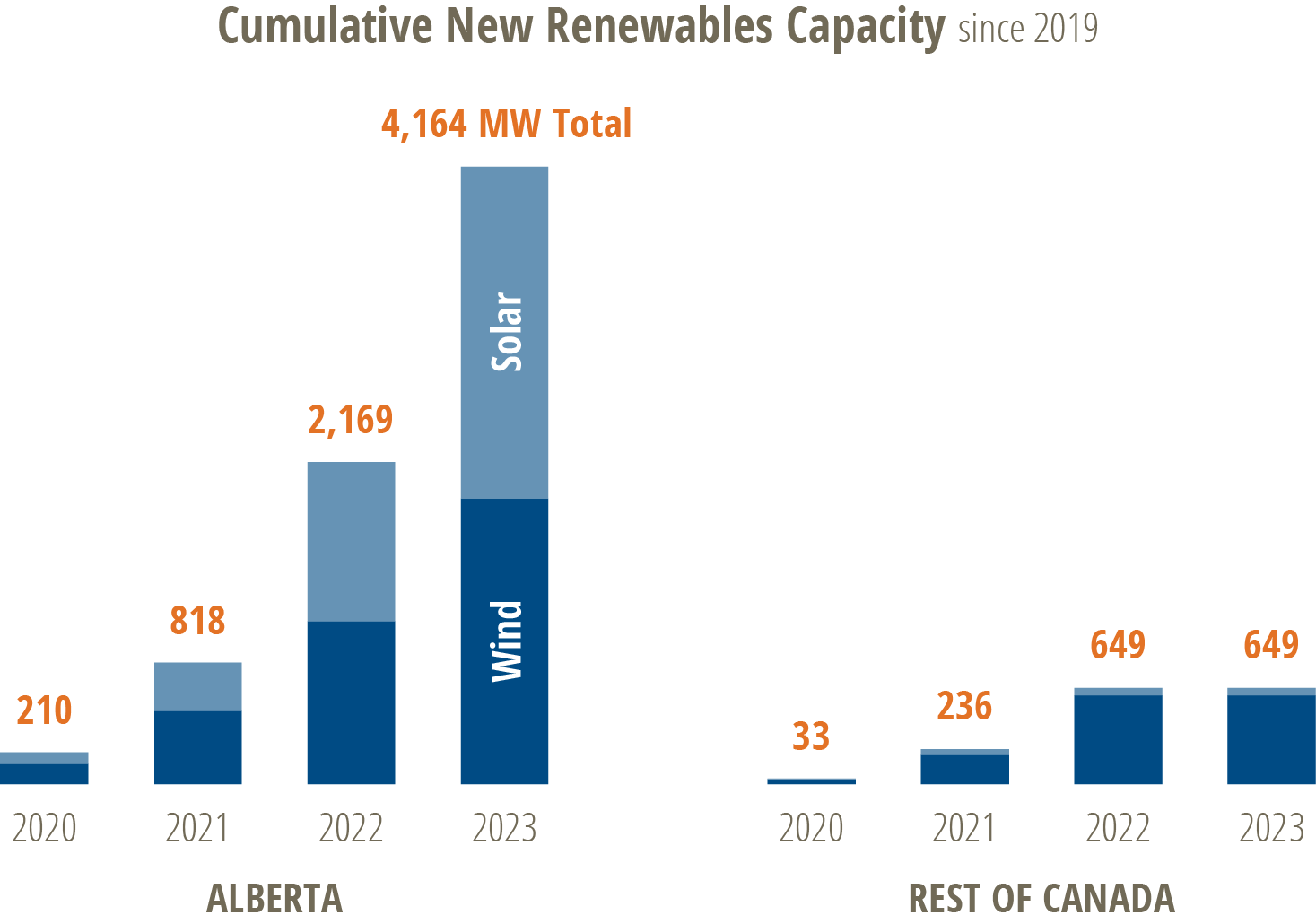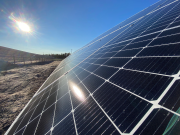The natural splendour of Alberta is no secret. Now this prized heritage is helping create another economic boom. The wind-swept prairies and vast sunny skies position the province favourably to lead Canada in wind and solar energy generation.
Alberta is on the path to becoming Canada’s renewable energy capital, with more than three-quarters of wind and solar generation built in Canada last year (Figure 1). Rural Alberta is even home to one of the largest solar farms in North America — the 465 megawatt (MW) Travers Solar Project in Vulcan County which produces enough electricity to power the equivalent of more than 150,000 homes. The recent surge in renewable development in the area is making up for lost revenues caused by abandoned fossil fuel assets, with municipal taxes from solar and wind now making up 45 per cent of the county’s revenue.

Figure 1. Wind and solar capacity installed in Canada (2020-2022) with expected new capacity in 2023
Between now and 2035, Alberta is likely to grow its wind and solar fleet by three to five times its current combined installed capacity. In the years to come, the province’s immense potential for wind and solar development will be a critical cornerstone in Alberta’s energy economy. Since 2019, corporate buyers have signed deals for wind and solar energy that will support nearly $5 billion of investment in Alberta, creating 5,430 jobs.
As growth in wind and solar development accelerates, Albertans can anticipate benefitting further from the province’s renewable energy advantage. Our research shows decarbonizing the grid could save Albertans more than $600 per household overall in annual electricity costs, as wind and solar lower the price of power and protect Albertans from the ups and downs of natural gas prices. But Albertans risk missing out on the cost-savings of a clean electricity grid if the province continues to prioritize emitting sources of energy on its grid.
Where clean energy portfolios can save Albertans money, encouraging investments in polluting energy sources could be costly. For example, greenlighting new natural gas power plants with no plans for carbon capture could result in stranded assets if the project loses value or turns into a liability before the end of its expected economic life. This could happen for many reasons, such as pure economics from gas price volatility and carbon pricing — the same drivers as were key to Alberta’s coal phase out — or regulations requiring emissions to be offset or captured. And Albertans could be the ones footing the bill as operators will still seek to earn a return on their investment.
In many parts of the country it is already more cost-effective to build new wind and solar than gas-fired electricity. On top of that, decarbonizing the grid will cost up to $28 billion less than predicted by previous analyses, providing ample opportunity for the province to invest in critical infrastructure, such as inter- and intra-provincial transmission, distribution and energy storage. This would maximize the province’s budding power for clean energy and maintain an affordable and reliable electricity grid.
The numbers are trending towards renewable energy growth globally. Decarbonizing its grid allows Alberta to remain competitive in the low-carbon economy and will benefit Albertans through both job opportunities and energy cost savings. The province risks missing these opportunities if it doesn’t create the right mix of policies, regulations and incentives to provide clarity to investors. With its proven, economic and available wind and solar resources, accelerating the buildout of renewables in Alberta is a no-regrets option. It’s time for the province to recognize the economic and environmental benefits of renewable energy as a key part of its natural resource endowment and move beyond its curiously lukewarm approach to this growing sector of the economy.










